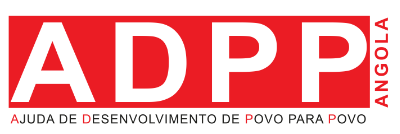Students at the ADPP teacher training college in Zaire sat the national exam in Pedagogy/Methodology for the first time this year. It all began on 20 September, with the students giving specially prepared classes at the primary schools where they were in teaching practice. Two EPF teachers attended each lesson, along with the class teacher, and all three evaluated the student’s performance. At this stage, there was no intervention of any kind, nor comment about how the lesson went.
The second part of the exam came a week later, when the students were given the opportunity to defend their lesson plans, and the members of the jury were also able to intervene, asking questions and requesting changes. This was the moment when the students could explain why they had chosen one method rather than another. Two common meetings and much preparation followed to ensure every detail of the final event was covered. Each of Team 2016’s core groups invited 30 guests from the community, including headmasters and teachers from the schools where they were gaining teaching experience, as well as friends.
On 14 October, when the big day finally arrived, all the guests started arriving early. The event began with the National Anthem, followed by songs from Teams 2016 and 2017. The Director of EPF gave a speech on the theme of “Another Kind of School,” which provided plenty to think about for the audience, especially for those with links to education.
Each group then accompanied their guests to the classroom where they would present the experiences they had prepared during the week. The whole process of preparation of these experiences was, in itself, a learning curve. Student Jordan, for example, changed his handwriting in just 24 hours in order to pass. Another student, failed eight times while trying to write up his work. In the end, the exam that everyone feared would be his or her undoing transformed into a celebration, and all thought of failure evaporated.
The groups concentrated on making their program as correct as possible in order to get the best mark from the examining board in their room. They prepared photographic displays of their teaching practice, and explained about their experiences in between acts of entertainment. The students performed theater, traditional dancing, games and poetry, all in the name of an exam that was more like a party.
At the end of the individual sessions, the groups brought their guests back to the assembly hall, and everyone heard the marks awarded by the juries. Some of the members of the juries were pupils from Kintambi and Kimbango primary schools, where the students were in teaching practice. What a reversal of roles, where a pupil evaluates his teacher!
Everyone then enjoyed a grand lunch, before the party continued into the evening with dancing and games. 206 people participated in the event, with the positive result that all the students passed. The lowest mark was 15 and the highest 19 (out of 20).



